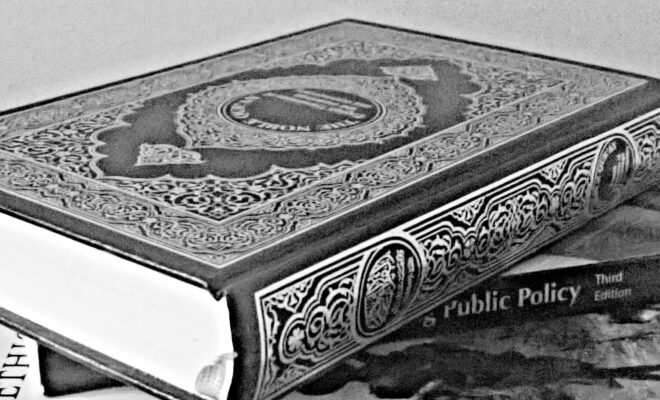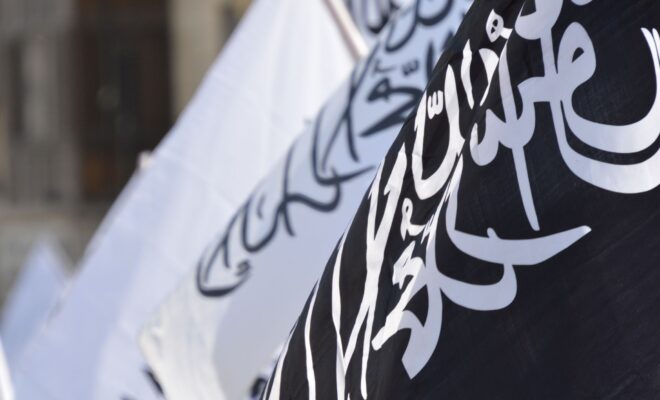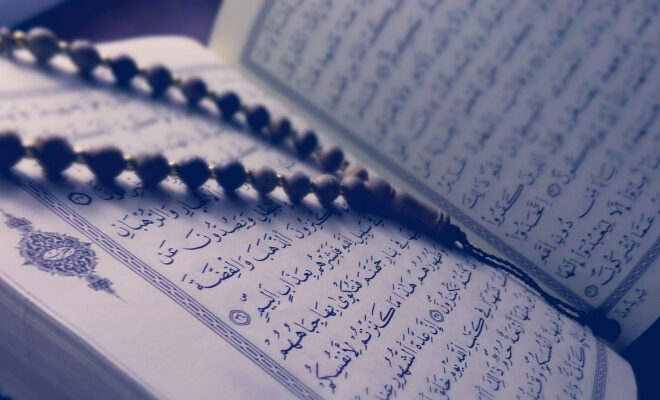The Khilafah – The Hope of the Ummah

The biggest calamity that has befallen the Ummah is the fact that it is ruled by the laws of Kufr, and thus deserving the wrath of Allah (swt). The Western colonial powers have enforced their dominance even on the internal affairs of the Ummah.
The rulers have become active players in the war on Islam. And the implementation of the Capitalist systems on the Ummah has led to injustice, poverty, humiliation, unjust wars, insecurity, and the list of calamities is long.
Next month, on the 28th of Rajab, the Ummah will mark the 98th anniversary of the fall of the Khilafah. We should use this anniversary as a reminder of our obligation – as an Ummah – to resume the Islamic way of life by re-establishing the Khilafah in the Muslim lands.
Since the abolishment of the Khilafah in 1342 Hijri/1924 CE, the Ummah has witnessed a succession of despotic rulers whose sole concern has been to please their Capitalist masters. These dictators, the Assads, Sisis, and Muhammed bin Salmans of this Ummah, are eagerly financed, armed, and supported by the parliaments of North America and Europe. Such subjugation has resulted in the political, economic, and social hardships of the Ummah. For example:
Poverty: A study by the Economist found that 1 out of 5 Arabs lives on less than $2 a day.
Corruption: According to Transparency International’s 2018 analysis, Muslim countries account for 7 of the 10 most corrupt countries that were surveyed.
War: According to the UN, the colonial wars have widowed 2 million women in Afghanistan and 744,000 women in Iraq.
Contrast this with when Islam was implemented in the Muslim lands:
Economy: Under the Khilafah of Umar bin Abdul Aziz (rh), the State Treasury was overflowing with funds to the point that no person could be found to accept the Zakat.
Governance: Also, under Umar bin Abdul Aziz’s (rh) Khilafah, good governance was established. When a man came to discuss personal matters with him, Umar (rh) blew out the state candle and used his personal candle, to ensure that he did not use state resources for personal benefit.
Security: When the Hijab of a Muslim woman was violated by Roman soldiers, the Abbasid Khaleefah Al-Mu’tasim (rh) mobilized an entire army to secure her safety and dignity.
Lack of Islamic leadership: The key issue
In this era, where the Muslims are in a state of subjugation and poverty, many sincere members of this Ummah have attempted to identify the root causes of the problems. Some may say the Ummah lacks resources and economic power. However, the lack of economic prosperity is a symptom of the actual problem, not the root cause.
In terms of resources, we are well aware that approximately 60% of the world’s energy resources reside in the Muslim lands. Furthermore, if we analyze Pakistan – just one of the 54 “statelets” that the Ummah has been dismembered into – we find that it possesses the land area of both France and Britain combined. Pakistan also has the 6th largest population in the world.
Furthermore, uniting the armies of Pakistan, Iran, Turkey, Egypt, Indonesia, Saudi Arabia, and Morocco would gather over 3 million soldiers. Clearly the resources (i.e. wealth of people, minerals, and land mass) are squarely located in the Muslim world.
One might ask: If there is such an abundance of resources in the Muslim lands, then why do we find the Ummah in economic difficulty?
The economic problems we face are directly linked to the lack of leadership. The current rulers do not govern this wealth according to the Book of Allah (swt); instead govern it according to the dictates of their American and European masters.
Thus, the issue is not a lack of resources, but a lack of Islamic leadership. What we lack is the shield that RasulAllah (saw) prescribed for us to use in order to protect ourselves. This shield is described in the Hadith:
“Truly the Imam is a shield – you fight behind him and you seek protection in him.” [Muslim]
Allah (swt) has made it an obligation on us to refer solely to the Qur’an and the Sunnah of His beloved Messenger (saw) in matters of ruling, economy, and settling the affairs of the people. As long as we tolerate the rule of the tyrant despots who do not rule by what Allah (swt) has revealed, we should only expect our current condition to persist. Allah (swt) has revealed:
“And rule between them by what Allah has revealed and do not follow their desires; and beware of them turning you away from some of what Allah has revealed to you.” [5:49]
Re-establishing the Khilafah – a comprehensive system of governance, education, courts, and other societal institutions based on the Quran and Sunnah – in the Muslim lands, is the only way of bringing Islam back into our daily lives, free from the influence and dominance of kufr.
Khilafah: One of the highest obligations
By the mercy of Allah (swt), the Shari’ah has identified certain issues as “vital,” meaning a matter of life and death for the Ummah. If such issues are not attended to, then the Ummah’s existence will be at stake. When a Hadith or Ayah links a command to taking a life in order to ensure its application, it signifies that this is a vital issue.
This is because the life of the human being is sacred and can only be violated under very specific circumstances.
Islam has made the unity of the Muslim Ummah and the unity of the State as one of the vital issues. This is identified in the Ahadith related the unity of the Khilafah. The Messenger of Allah (saw) said:
“If the Bay’ah is given to two Khulafaa’, kill the latter of the two.” [Muslim]
Hence, the Prophet (saw) made the unity of the State a vital issue when he prohibited the existence of more than one Khaleefah, ordering the death penalty for the one who insists on splitting the political unity of the Ummah.
Now that the Islamic State no longer exists, these Ahadith indicate the level of priority we must give to ensure that the Ummah is united under the leadership of one Khalifah (Caliph). We must understand that the unity of the Ummah is a “matter of life and death” and therefore we must exert our utmost effort to re-establish the Khilafah in the Muslim lands.
The Return of the Khilafah
The current era of tyrannical rule over the Ummah was prophesized by Prophet (saw) in the famous Hadith:
“…then there will be oppressive rule, which will last as long as Allah wills…”.
However, the same Hadith also informs us that, after this tyrannical era:
“…then there will be a Khilafah on the way of the Prophethood.”
So, Allah (swt) has promised victory to the Ummah. He (swt) has revealed:
“Allah has promised those of you who believe and do good deeds that He will surely give them succession (to rule) on earth, as He gave succession to those before them; and He will surely establish for them their Deen that He has approved for them, and will exchange for them safety after fear.” [24:55]
Allah (swt) never fails in His promise. We should therefore be motivated by these Ahadith and Ayat to look forward to the return of the Khilafah as the hope for the Ummah.
However, this does not give us the excuse to sit back and wait for the Khilafah. Instead we must work to re-establish it according to the same method that the Prophet (saw) used to establish it the first time.
This includes taking the entire Deen – individual Ahkam and political Ahkam – as the foundation of our lives, forming public opinion among the Ummah in favor of the full implementation of Islam, eliminating any loyalty for any leader or system that is based on other than Islam, and seeking the support of the sincere people of power and influence within the Ummah to re-establish the Khilafah State.









